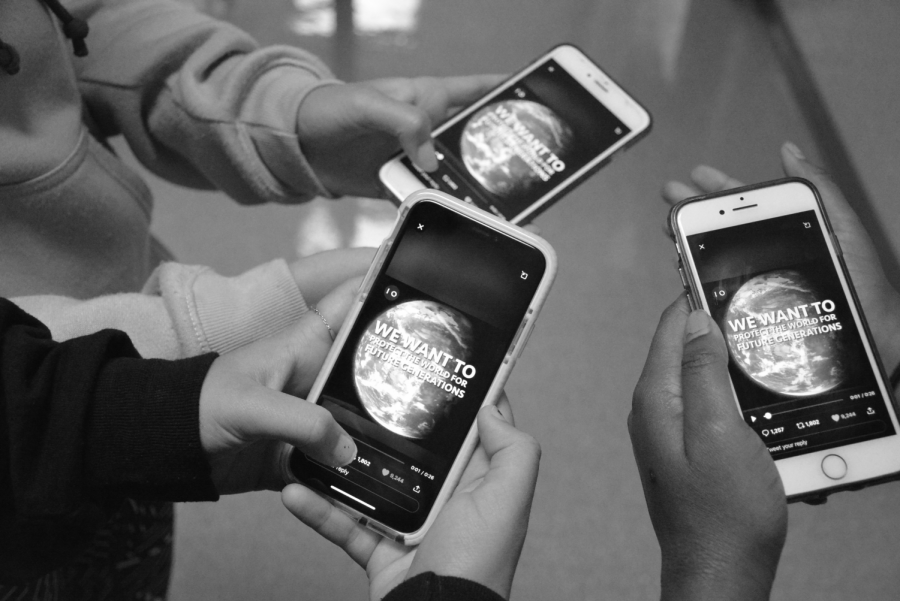Staff editorial: Action needed in climate change debate
Many of those on social media seem to be convinced that a retweet could make a larger impact than it truly does. What we must understand is that direct action makes a substantial difference.
October 9, 2019
Social media has completely changed the way we absorb news, regardless of whether or not we actively consume it. Reports and articles about the world’s latest tragedies are constantly thrown in our faces. An unfortunate consequence of the fast-paced nature of modern news is people using the media buzz to generate profit and attention for their own gain. After a grim incident gathers media coverage, several companies will come out of the woodwork, guaranteeing impossible promises such as “Every ‘like’ this photo gets will feed one hungry child” or “Every ‘like’ is one dollar donated to charity.” Since we’re so accustomed to the rapid spread of information, people mindlessly hit repost, think they’ve done their part and move on with their day. With just two seconds of extra research, you can discover that the profile page has only one post and no link to the company’s website.
Let’s be clear: there is nothing wrong with raising awareness. It prevents the public from being ignorant about certain issues, and can spark debates in politics, eventually leading to real action being taken. However, the problem is that people settle for only going as far as to acknowledge that a problem exists. People are willing to take action that requires little effort, but that effort reflects how much the environment was helped, which is barely at all. Rather than limiting daily water consumption, food waste and carbon emissions, most people set out to help the environment in a style that doesn’t restrict their lifestyles or cause discomfort. They will do just enough to think that their actions have made an impact. Every amount of effort counts, but as the world’s climate continues to change at an unnaturally rapid pace, we will have to step out of our comfort zones to make a significant difference. Individuals cannot claim to be environmental activists if their work is limited to posting about natural disasters on social media, or refusing to use plastic straws. They must actively donate to organizations, cut out food products that facilitate greenhouse gas emissions and join public protests.
The reason few of us are taking action is because we are victim to the bystander effect, which leaves a person feeling that someone else will take care of a problem or prevent a crime, leading to no one person taking action. Now, the crime is on a global level, and it deals with how we treat the environment. At the end of the day, the more comfort we indulge in while neglecting a pressing problem, the more it will come back to bite us. The environment is what gave us a home and allowed us to live in the first place. A “like,” “share” or “retweet” is great for spreading concern about a problem, but we are past the concerned stage. It’s time to take direct action to repay the environment for what is has done for us, and care for it selflessly.


